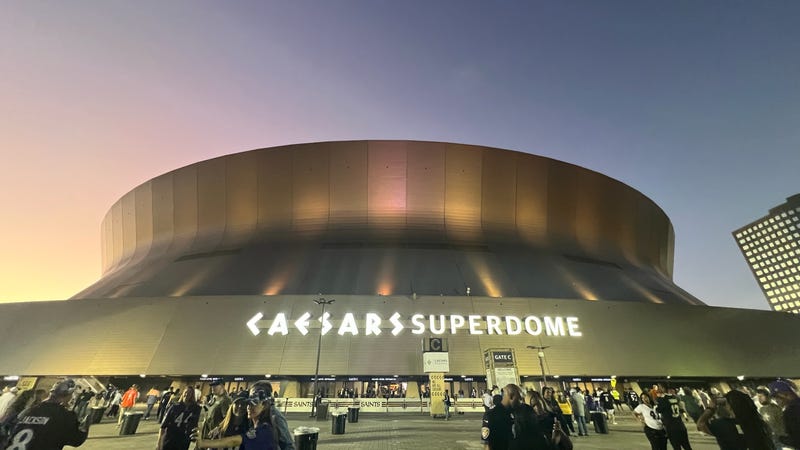
Twenty years ago this week, Hurricane Katrina came ashore along the Louisiana and Mississippi Gulf Coasts. The Superdome became one of the focal points of the tragedy in New Orleans, as thousands of evacuees were stranded there in the immediate aftermath of the levees' failure and the city flooding.
In the 20 years since then, the Superdome's renaissance has mirrored the city's own rebirth.
"They knew that failure was not an option," Superdome executive Doug Thorton said, referring to his staff who helped get the Superdome back in order in the year following Katrina.
According to Thorton, members of his staff, many of whom lost their homes and/or love ones in the hurricane, pushed themselves to reopen the Superdome in time for the 2006 Saints season. That's because they wanted to help the city return to some sense of normality. He said if they didn't, it would be a sign that recovery would be long and slow.
"We all banded together for that one-year period to make it happen," Thorton said.
And it culminated with a sellout crowd in the Superdome. Many of the more-than-70,000 fans in the arena that night hadfled the city one year earlier. They came home to see the Saints, the Superdome, and the city of New Orleans be reborn--a rebirth punctuated by Steve Gleason's blocked punt and the Saints 23-3 victory over the Atlanta Falcons.
"It was a very emotional moment for me, it was kind of one of almost suspended belief in many ways that I didn't think it would ever happen, but it did, and it was a great night," Thorton said. "It really was a sense of pride, a sense of relief, because many of us didn't know if we would be back in the building much less playing a football game in one year."
In the 20 years since Katrina, the Superdome has been a focal point of the city's post-storm recovery and economic growth. Saints owner Tom Benson's and the National Football League's decision to return the team to New Orleans in the aftermath of the storm helped spur a renaissance for both the Black-and-Gold and for the city's sports tourism industry.
"We had the NBA All-Star Game. We had the Super Bowl. We had the Final Four. I think we had two college football championships," Thorton said, listing off some of the events the Superdome and the Smoothie King Center have hosted over the last 20 years.
Thorton says those events helped stimulate growth in and around New Orleans, especially in the tourism and entertainment sectors. Thorton believes that infrastructure combined with the Superdome and the Smoothie King Center will help New Orleans continue to grow in its post-Katrina era.
"We've got a great hospitality infrastructure with our hotels, our restaurants, with the convention center expansion, the river district that's being expanded beyond the convention center," Thorton said. "I see no reason why we can't take advantage of the infrastructure that we have. Many cities have to create what we have here. We have it in place. All we have to do is improve upon it and innovate and make it modern and make it competitive."

